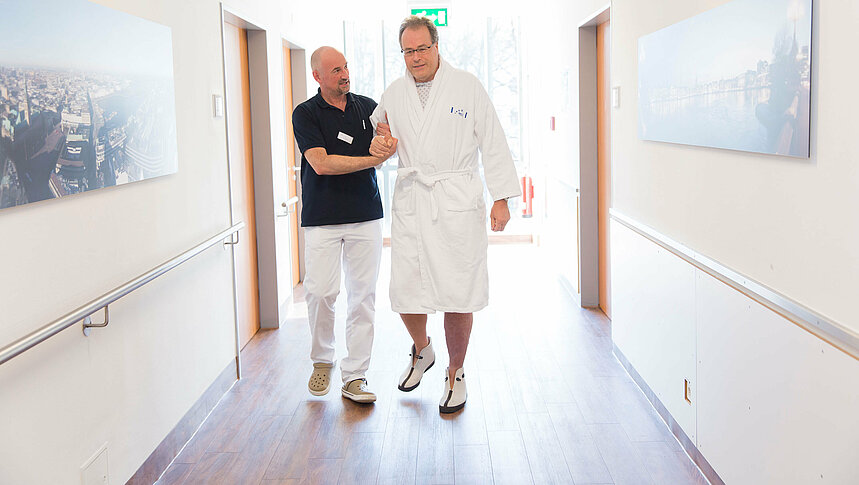Day of surgery
On the day of your surgery, the nursing staff on your ward will help to get you ready before bringing you to the operating room. We’ll take care of everything. You will have to fast for several hours before the operation, so you will not be able to eat, drink or smoke. The anaesthetists and nurses will inform you of the exact times of your fast. After the surgery, you will only be taken back to your room once the anaesthetic has almost completely worn off, which means it could be late afternoon or evening by the time you return. You can drink fluids after the surgery. Please speak to the team on your ward about when you can and wish to eat. You will be given infusions over the course of the day via an IV line to make sure your body gets the fluids it needs. You will also be given pain relief medication to minimise any wound pain. Later in the evening, your surgeon will visit you to let you know how the surgery went.







